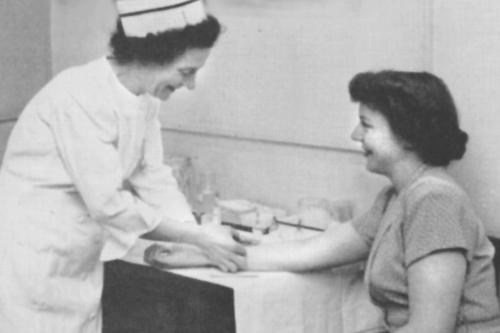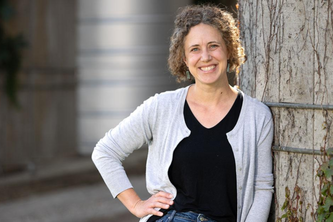
Two truths and a lie regarding Boynton Health (answer at end of story):
A. In the 1930s the U’s health service gave every incoming student a full medical examination, haircut, and medical thermometer.
B. In the 1950s the health service offered house calls for students for 50 cents during the day and a buck overnight.
C. In 2008, Boynton Health set the Guinness World Record for giving 11,581 flu vaccinations in one day.
A century ago, in the fall of 1918, the state and nation were in the throes of a global flu epidemic that would kill 50 million people. At the same time, the University of Minnesota opened a health service with a medical director and one part-time physician. It would provide care for 2,000 cases of the flu, and although 20 students died from the disease, the loss of life was less than at many comparable institutions.
One of those stricken was Ruth Boynton, a medical student who was volunteering at the health service when she caught the virus. When she recovered, she continued her studies and received her M.D. in 1921—the head of her class and the only woman.
Boynton eventually returned to the health service as its director in 1936, and went on to become a pioneer in controlling tuberculosis, and a visionary director whose influence continues to be felt today.
As the years and decades have passed, the health service that now bears Boynton’s name has adapted and expanded to meet the changing needs of students.
There are now nearly 20 clinical and health care services available for students (and staff), and another half-dozen stress management and healthy-lifestyle activities.
Just this decade—as the College Student Health Survey has reported a steady increase of students diagnosed with anxiety and depression— Boynton has more than doubled the size of its mental health clinic, from 17 providers in 2010 to 39 in 2018.
Boynton also created the wildly successful PAWS (Pet Away Worry and Stress) program, where students can interact weekly with dogs, cats, rabbits, chickens, guinea pigs, and even miniature horses—all registered therapy animals. (PAWS has expanded to regularly include the Recreation and Wellness Center on the East Bank and the St. Paul Student Center.) In 2017 Boynton became one of the first college health services to provide a Transgender Health Clinic, and it also added a healthy food pantry for students.
From helping prevent flu—a century ago and now—to helping prevent food insecurity, Boynton continues to honor the legacy of Ruth Boynton.
Answer: "B" and "C" are true. "A" was true up through the examination, but the haircut and thermometer are lies.
- Categories:
- Health





